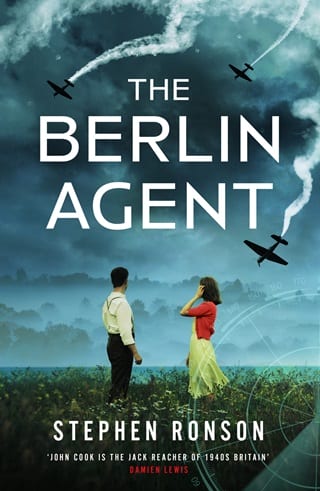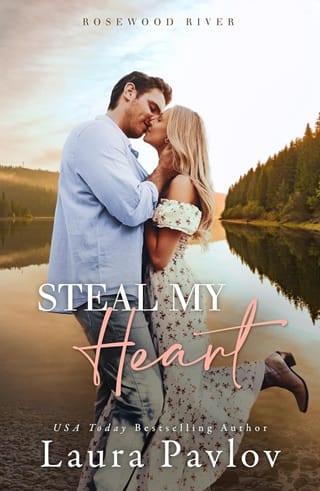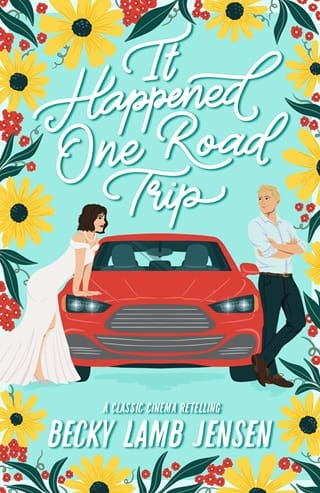19
We sat on a picnic blanket in the walled garden that was now mostly unkempt lawns. The crumbling old brick walls radiated the heat from that day’s sun. Margaret’s cook had left a plate of sandwiches, which we supplemented with a few -bottles of wine, dug out from the furthest corner of the cellar. Since I’d got to know Margaret, I’d come to learn that her hospitality invariably left a lot to be desired. Despite inheriting one of the largest houses in Sussex, she was broke. If any one of her creditors knew the full picture there’d be ‘for sale’ signs up in an instant.
‘So how do you know Mags?’ Vaughn asked me.
‘I was going to ask you the same thing.’
‘Well, that,’ he said, leaning over and putting a hand on Margaret’s thigh, ‘is a long and complicated story, which I’ll tell you once we’ve become better friends.’
‘What’s the headline version?’ I asked, with a calm I was surprised I was able to muster.
‘How about ... Bombay Nights ... an epic tale of intrigue, love and lust in the declining days of the Raj.’
Margaret took Vaughn’s hand off her thigh.
‘Vaughn knew my father in Bombay,’ she said.
Vaughn clasped his hands over his heart.
‘Such ruthless brevity,’ he gasped. ‘Somebody top up her wine glass, maybe she’ll find her tongue again. Or maybe somebody else has already found it.’ He winked at me.
I did my best to smile.
Vaughn clicked his fingers as he remembered something. He pointed at Margaret.
‘I say, Miriam’s down for a few days. We’ll have to have you over. She’d love to see you.’
‘What’s she up to nowadays?’ Margaret asked. ‘The last time I saw her she was a child. I can’t imagine her out in the world.’
‘We’ll have a party,’ Vaughn said, ignoring Margaret’s question. ‘Push the boat out. You’re both invited, and I won’t take no for an answer.’
‘That would be lovely,’ Margaret said.
‘So, Cook,’ Vaughn said to me. ‘What did you make of our show at the church hall?’
He was right to call it a show. It would have been scripted on each side. Carefully crafted and performed, designed to elicit an emotional reaction in an audience.
‘You both present the same point of view about the need for peace,’ I said. ‘You pretend to debate the finer points. It creates the impression that peace with Germany’s a natural conclusion. You have the young chap go off the rails about the royals, which gives the crowd something to feel scandalised about. Meanwhile, you hope that one or two of them start to ask their friends about Poland, or about the Rothschilds.’
‘You think we’re being too obvious?’ he asked.
‘I’m the wrong person to ask about the finer points of propaganda,’ I said. ‘Plus, I don’t agree with you.’
‘What’s your solution to the Jewish problem?’ Vaughn asked.
‘You’re doing it again,’ I said. You’re stating an opinion as a fact, inviting me to debate you on the finer points.’
‘You don’t think it’s a problem that the great families of Europe are in debt to people who don’t claim allegiance, or owe any duty, to any country?’
‘I don’t know anyone in high finance,’ I said. ‘The only banker I know’s George Crafts, who holds the loan on my land. Hard to imagine anyone getting particularly worked up over that arrangement.’
I had more to say about Vaughn’s theories, but I was interrupted by a roar overhead. A flight of Spitfires, returning from the continent. Seventeen planes, two formations of six, and one of five. One man lost.
‘All right,’ Vaughn said, as the roar of the Merlin engines receded. ‘What do you believe in?’
Margaret put her hand on my arm.
‘I believe in England,’ I said. ‘This countryside. Those people who came out to the church hall to educate themselves, to better themselves. I believe it’s worth fighting for, and I believe I’ll die fighting for it, likely sooner rather than later.’
Vaughn leant towards me and refilled my wine glass.
‘ I believe,’ he said, ‘that we all need to get hammered.’
He raised his glass in a toast.
‘To the delectable Lady Margaret –’ he took a deep draught – ‘and her gentleman farmer, Mr Cook, who’s going to die fighting for us all, sooner rather than later.’
 Fullepub
Fullepub 



